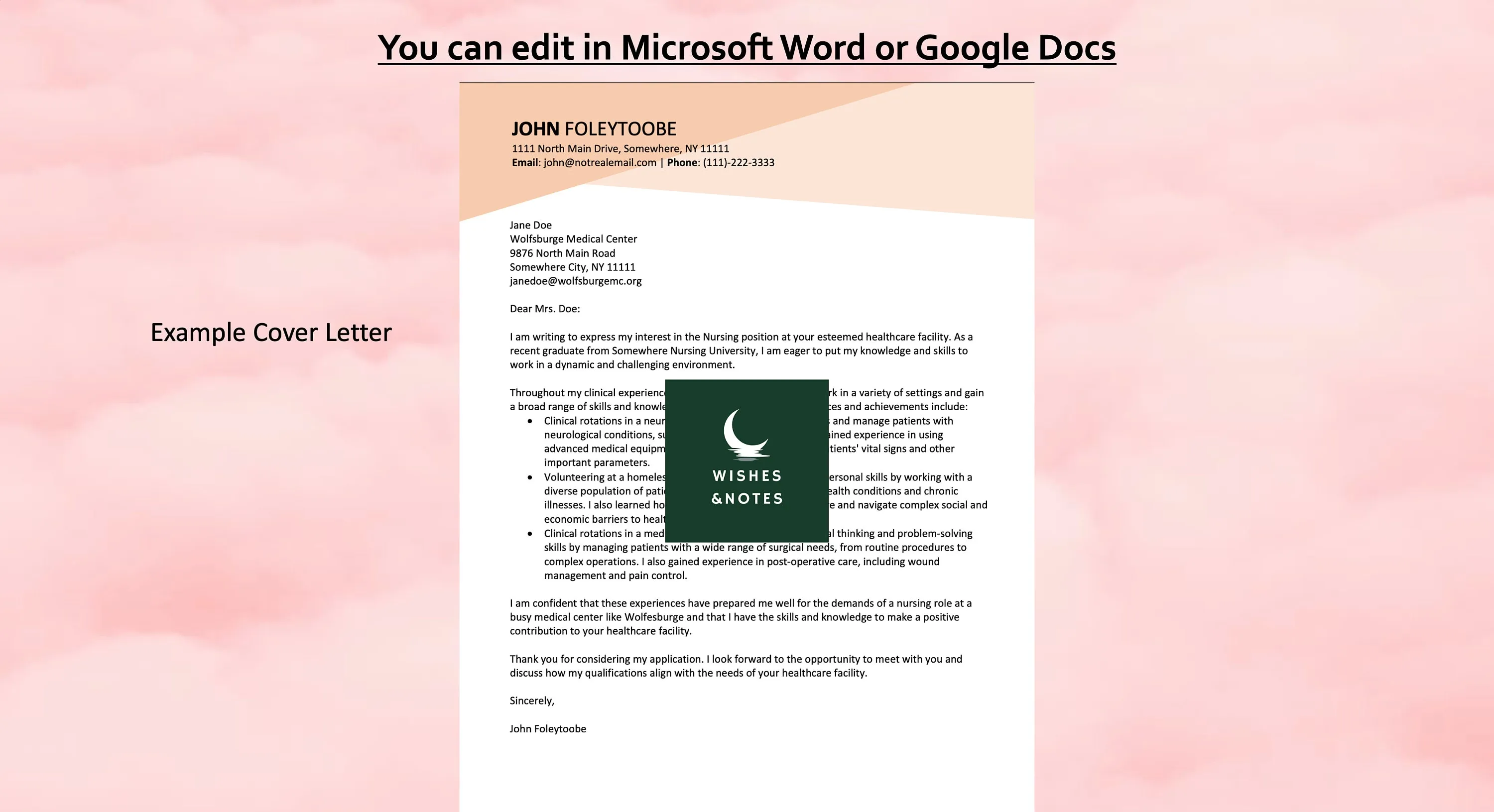Understanding the RN New Grad Cover Letter
As a Registered Nurse (RN) new graduate, your cover letter is your first impression. It’s your chance to showcase your qualifications, enthusiasm, and personality to potential employers. Unlike experienced nurses, new grads often lack extensive professional experience. Thus, the cover letter becomes crucial in highlighting your potential, academic achievements, and transferable skills. This document should be a tailored pitch that sets you apart from other applicants. This guide will help you craft a standout cover letter that grabs the attention of hiring managers and increases your chances of securing an interview and landing that first nursing job.
Key Components of an RN New Grad Cover Letter
A well-structured cover letter includes essential elements. Begin with your contact information and the date. Then, address the hiring manager by name, if possible. The body of the letter should include an engaging opening paragraph, followed by sections that highlight your education, clinical experience, skills, and passion for nursing. Always tailor the letter to the specific job description. Conclude with a strong closing paragraph that reiterates your interest and includes a call to action. Remember to proofread meticulously before submitting your application. This format will ensure a professional and compelling document.
Contact Information & Addressing the Hiring Manager
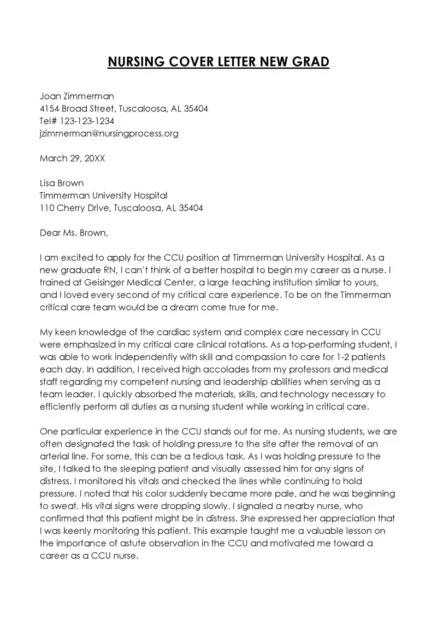
Begin your cover letter with your full name, address, phone number, and professional email address. This allows the hiring manager to easily contact you. If the job posting includes a contact person, address your letter to them; otherwise, research the hiring manager’s name. Addressing the letter to a specific person shows that you’ve done your homework and are genuinely interested in the position. If you cannot find a specific name, use a professional greeting such as “Dear Hiring Manager.” This personal touch can make a significant difference in the hiring manager’s perception of your application.
The Opening Paragraph Grabbing Attention
The opening paragraph is your hook. It should immediately capture the reader’s attention. State the position you’re applying for and where you saw the job posting. Briefly express your enthusiasm for the role and the organization. You can include a short anecdote about your passion for nursing or mention a specific skill that aligns with the job requirements. The goal is to make a positive first impression that encourages the hiring manager to read further. A strong opening creates a connection and sets the tone for the rest of your letter, making it more engaging and memorable.
Highlighting Your Education & Credentials
Since you are a new graduate, your education is a crucial part of your cover letter. Mention your nursing degree, the name of your school, and your graduation date. If you have a high GPA, honors, or relevant coursework, include them. Also, mention any certifications, such as BLS, ACLS, or other specialized training relevant to the position. This section proves that you have the foundational knowledge required for the job. Highlighting your academic achievements and certifications demonstrates your commitment to excellence and preparedness to practice nursing.
Showcasing Relevant Clinical Experience
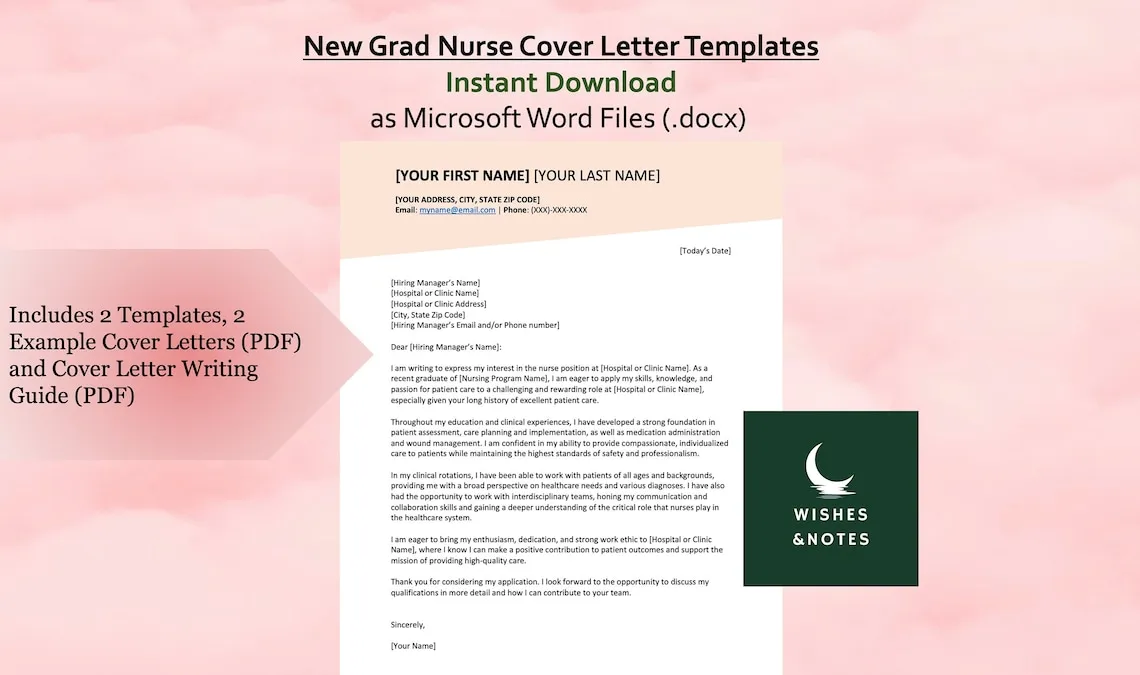
While you may lack extensive work experience, your clinical rotations are invaluable. Describe the clinical experiences you had during your nursing program. Focus on the settings where you gained experience, such as medical-surgical, ICU, or pediatrics. Highlight the specific skills and responsibilities you performed in each rotation. Include any leadership roles you had, such as charge nurse responsibilities during a simulation or clinical setting. Quantify your achievements whenever possible, such as the number of patients you cared for or any positive outcomes you contributed to. By providing concrete examples, you demonstrate your ability to apply your knowledge in real-world situations.
Emphasizing Skills & Competencies
Identify the skills and competencies most relevant to the job description. These may include clinical skills like medication administration, wound care, and patient assessment. Also, emphasize soft skills such as communication, teamwork, critical thinking, and problem-solving. Provide examples of how you have demonstrated these skills in your clinical rotations. Describe situations where you successfully communicated with patients, collaborated with a healthcare team, or resolved a patient’s issue. Tailor your skills section to the specific requirements of the job. Matching your skills to the job description increases your chances of standing out as a qualified candidate.
Demonstrating Passion for Nursing
Employers value nurses who are passionate about their profession. In your cover letter, express your enthusiasm for nursing and your commitment to providing high-quality patient care. Explain what drew you to nursing and what motivates you to excel in this field. Mention any specific areas of nursing that interest you and why. Show your understanding of the organization’s mission, values, and how your goals align with theirs. Your passion should shine through, making you seem enthusiastic and committed to the nursing role, which can impress the hiring manager and set you apart from other candidates. Illustrate this with experiences and activities, such as volunteering or shadowing.
Tailoring Your Cover Letter to the Job
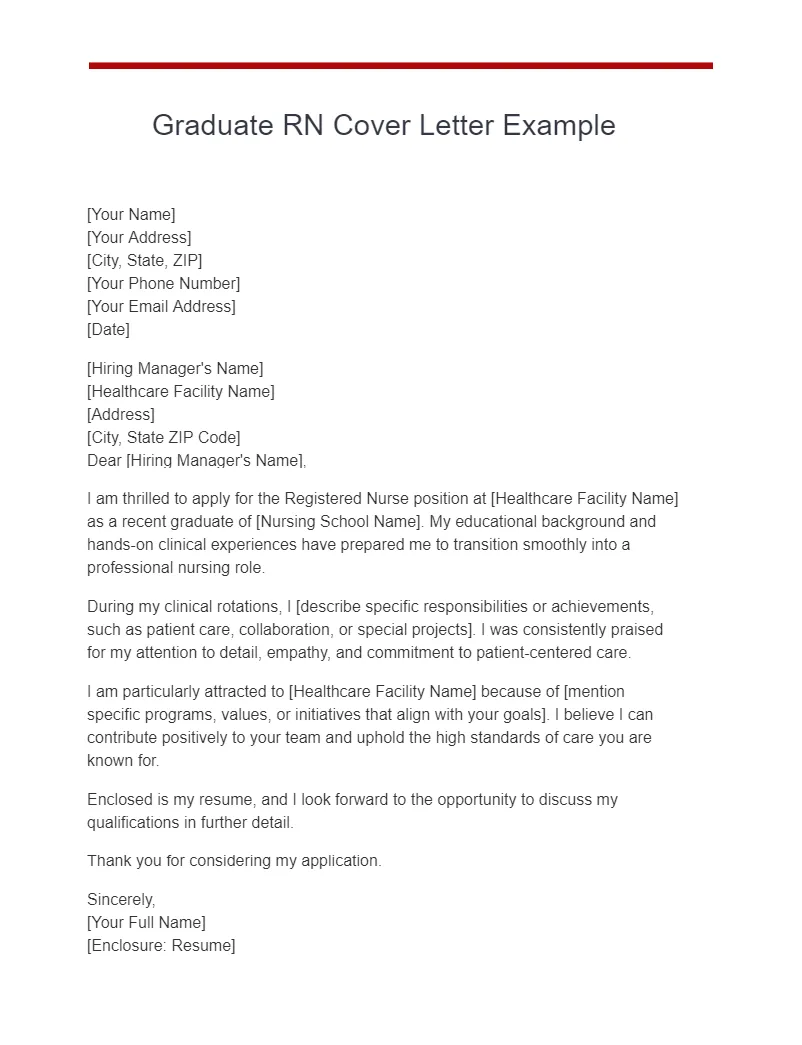
Do not send a generic cover letter. Customize each letter to the specific job and organization. Carefully review the job description and identify the key requirements and desired qualifications. Use the language from the job posting to describe your skills and experience. Research the organization and its values, and align your letter accordingly. Tailoring your cover letter shows that you have a genuine interest in the position and are willing to put in the effort to demonstrate your suitability for the role. Personalized cover letters are far more effective than generic ones.
Proofreading & Formatting
Proofread your cover letter meticulously before submitting it. Check for grammar, spelling, and punctuation errors. Ask a friend, family member, or career advisor to review your letter for clarity and accuracy. Poorly written letters can create a negative impression. Use a professional and easy-to-read font, such as Times New Roman or Arial. Maintain consistent formatting throughout the document. Ensure your cover letter is well-organized, with clear headings and concise paragraphs. Proofreading demonstrates your attention to detail and professionalism, making your cover letter more impactful.
Common Mistakes to Avoid
Avoid common mistakes that can undermine your cover letter. Don’t use generic templates. Steer clear of overly lengthy paragraphs and unnecessary jargon. Avoid mentioning salary expectations unless the job posting specifically requests them. Don’t include negative comments about past employers or experiences. Refrain from exaggerating your skills or qualifications. Proofread your letter multiple times to catch any errors. Be professional in all aspects of your application, and do not rely solely on automated grammar and spell-checking tools.
Creating a Strong Closing Paragraph
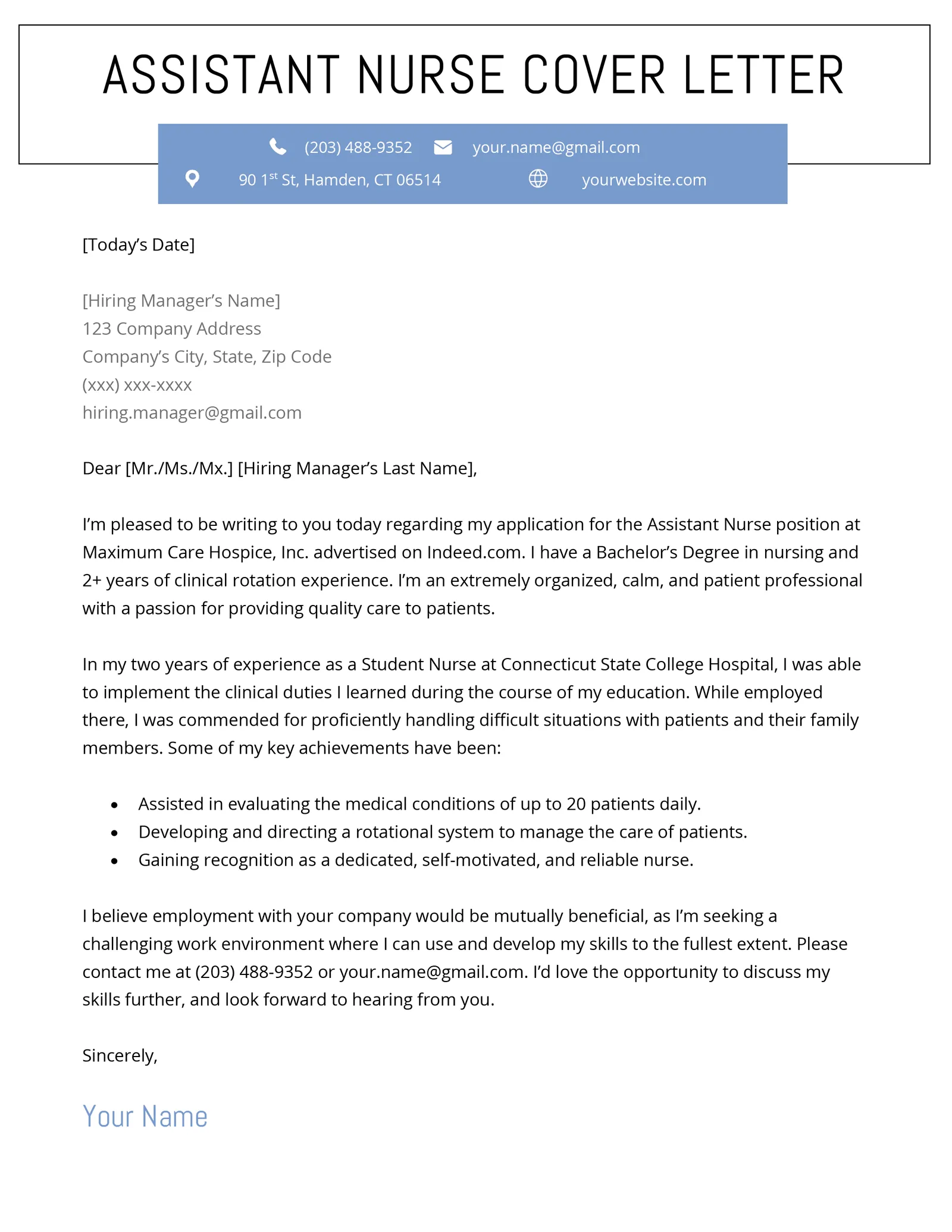
End your cover letter with a strong closing paragraph. Reiterate your interest in the position and the organization. Thank the hiring manager for their time and consideration. State your availability for an interview and how they can contact you. Include a call to action, such as “I look forward to hearing from you soon.” Make your closing concise, enthusiastic, and professional. The closing should confirm your eagerness for the role and leave a lasting positive impression on the hiring manager.
